-
 Bitcoin
Bitcoin $81,899.5591
-5.17% -
 Ethereum
Ethereum $1,783.8667
-6.15% -
 Tether USDt
Tether USDt $0.9995
-0.03% -
 XRP
XRP $2.0489
-4.45% -
 BNB
BNB $587.4139
-2.79% -
 USDC
USDC $1.0001
0.02% -
 Solana
Solana $115.1373
-11.64% -
 Dogecoin
Dogecoin $0.1587
-8.43% -
 Cardano
Cardano $0.6385
-6.91% -
 TRON
TRON $0.2360
-1.08% -
 Toncoin
Toncoin $3.5760
-10.43% -
 UNUS SED LEO
UNUS SED LEO $9.3901
-0.32% -
 Chainlink
Chainlink $12.6219
-9.38% -
 Stellar
Stellar $0.2577
-4.87% -
 Avalanche
Avalanche $18.0492
-6.87% -
 Sui
Sui $2.2219
-9.39% -
 Shiba Inu
Shiba Inu $0.0...01218
-3.70% -
 Hedera
Hedera $0.1604
-7.08% -
 Polkadot
Polkadot $4.0288
-2.51% -
 Litecoin
Litecoin $82.2067
-5.10% -
 MANTRA
MANTRA $6.4186
1.43% -
 Bitcoin Cash
Bitcoin Cash $294.8176
-4.96% -
 Dai
Dai $0.9999
0.02% -
 Bitget Token
Bitget Token $4.4550
-3.01% -
 Ethena USDe
Ethena USDe $0.9995
-0.03% -
 Pi
Pi $0.5875
-13.39% -
 Monero
Monero $209.7409
-4.91% -
 Hyperliquid
Hyperliquid $11.2789
-16.95% -
 Uniswap
Uniswap $5.7386
-7.48% -
 Aptos
Aptos $5.0040
-7.56%
What is the forced liquidation mechanism of a DOGE contract?
DOGE perpetual contract liquidation, triggered when margin falls below maintenance levels, automatically closes leveraged positions to minimize exchange and trader losses. The liquidation price, influenced by market price, volatility, and leverage, aims to recover losses, with any surplus returned to the trader.
Mar 17, 2025 at 08:01 am
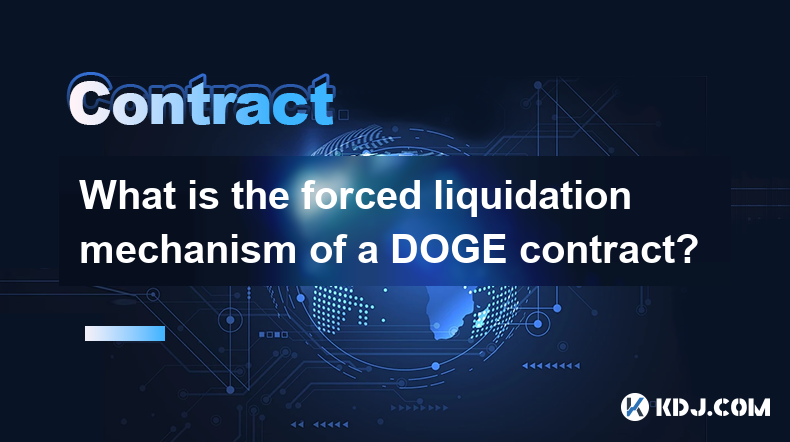
Key Points:
- DOGE perpetual contracts, unlike spot trading, involve leverage and necessitate a margin.
- Forced liquidation occurs when the trader's margin falls below the maintenance margin requirement.
- The liquidation process aims to minimize losses for the exchange and other traders.
- Several factors influence the liquidation price, including leverage, price volatility, and the exchange's specific parameters.
- Understanding liquidation risk is crucial for managing DOGE contract trading.
What is the forced liquidation mechanism of a DOGE contract?
Trading DOGE perpetual contracts differs significantly from simply buying and holding DOGE. Perpetual contracts allow leveraged trading, meaning you can control a larger position than your initial investment allows. This leverage amplifies both profits and losses. To facilitate this, you must maintain a margin – a portion of your funds held as collateral.
The maintenance margin is the minimum amount of collateral required to keep your position open. If the market moves against your position, your margin decreases. When your margin falls below the maintenance margin, the exchange initiates a forced liquidation. This isn't a punishment, but a risk management mechanism to protect both the exchange and other traders from excessive losses due to a single trader's failing position.
The liquidation process itself varies slightly depending on the exchange. However, the core principle remains the same: the exchange automatically closes your position to recover the losses. The exchange sells your DOGE contract at the prevailing market price. This sale aims to recoup the funds lost due to your position's negative equity. The proceeds from the sale are used to cover your losses, and any remaining balance is returned to you.
Several factors determine the exact liquidation price. The most significant is the current market price of DOGE. However, exchanges often implement a "liquidation price" which is slightly below the current market price to ensure sufficient funds are recovered. Higher leverage magnifies the risk of liquidation; a smaller price movement will result in liquidation with higher leverage. Similarly, increased volatility in the DOGE market increases the chance of liquidation, even with relatively low leverage. Each exchange also sets its own specific parameters influencing the liquidation mechanism, so it's crucial to review the terms and conditions of your chosen exchange.
Understanding how leverage affects your position is critical. While it offers the potential for greater returns, it equally amplifies losses. A small movement against your position can quickly erode your margin, leading to liquidation. Proper risk management, including setting stop-loss orders and using appropriate leverage levels, is essential to mitigate this risk. Avoid over-leveraging, which significantly increases the probability of forced liquidation.
The timing of liquidation is also important. The exchange doesn't necessarily liquidate your position at the absolute worst possible price. However, it’s done quickly to minimize further losses. The speed of liquidation can depend on market conditions and the exchange's infrastructure. There's often a small delay between your margin falling below the maintenance level and the actual liquidation. But this delay is usually minimal.
Liquidation is an inherent risk in leveraged trading. It's not a matter of if it can happen, but when. By understanding the mechanics and mitigating factors, traders can better manage their risk and potentially avoid the negative consequences of forced liquidation. Remember to always trade responsibly and within your risk tolerance. Consult the terms and conditions of your specific exchange for detailed information regarding their liquidation policies.
Frequently Asked Questions:
Q: What happens to my remaining funds after liquidation?
A: Any funds remaining after the exchange has covered your losses from the liquidated position will be returned to your account. If the losses exceed your margin, you will have a negative balance.
Q: Can I prevent forced liquidation?
A: While you can't completely prevent it, you can significantly reduce the risk by using lower leverage, setting stop-loss orders to automatically close your position at a predetermined price, and carefully monitoring your margin levels.
Q: How is the liquidation price determined?
A: The liquidation price is typically slightly below the current market price to ensure the exchange can recover its losses. The exact formula varies depending on the exchange, but factors like leverage and market volatility play a role.
Q: What is the difference between liquidation and margin call?
A: A margin call is a warning that your margin is approaching the maintenance margin level. Liquidation happens after the margin call if you fail to add more funds or adjust your position. Liquidation is the automatic closure of your position.
Q: Is liquidation always instantaneous?
A: While exchanges aim for quick liquidation, there can be a slight delay. The speed depends on market conditions and the exchange's systems. The delay is usually short.
Q: What if the market moves extremely rapidly against my position?
A: Even with stop-loss orders, rapid market movements can sometimes lead to liquidation at a less favorable price than intended. This is a risk inherent in highly volatile markets.
Q: Can I appeal a liquidation?
A: Appealing a liquidation is typically difficult and often unsuccessful, as the process is automated to minimize losses for the exchange and other traders. Review your exchange's policies for details.
Q: Are there any fees associated with liquidation?
A: Yes, exchanges usually charge fees associated with liquidation. These fees may vary and are often detailed in the exchange's terms of service. Check your exchange’s specific fee structure.
Disclaimer:info@kdj.com
The information provided is not trading advice. kdj.com does not assume any responsibility for any investments made based on the information provided in this article. Cryptocurrencies are highly volatile and it is highly recommended that you invest with caution after thorough research!
If you believe that the content used on this website infringes your copyright, please contact us immediately (info@kdj.com) and we will delete it promptly.
- Builder: Stu
- 2025-04-04 03:25:12
- PayPal Adds Solana (SOL) and Chainlink (LINK) to Its Supported Cryptocurrencies
- 2025-04-04 03:25:12
- Recent Price Action Shows Signs of Recovery
- 2025-04-04 03:20:12
- Standard Chartered (AVAX)
- 2025-04-04 03:20:12
- WisdomTree Expands Its Institutional Tokenization Platform to 13 Funds
- 2025-04-04 03:15:12
- PEPE hopped its way to a $3.8M market cap, but its reign as a meme coin darling is fading. Enter InfluencerPepe (INPEPE)
- 2025-04-04 03:15:12
Related knowledge
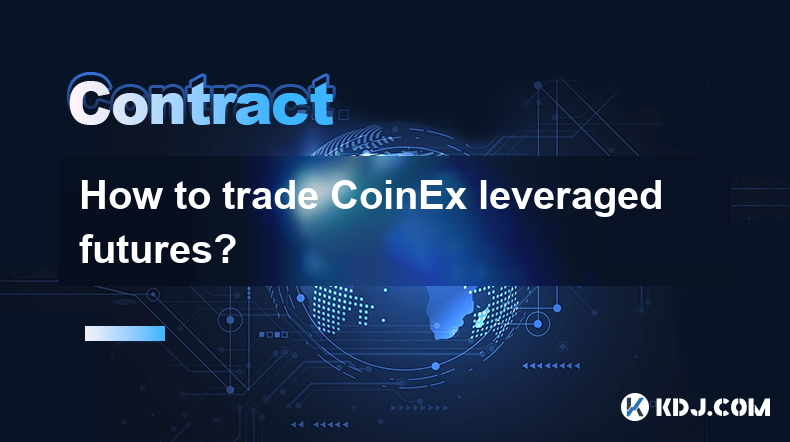
How to trade CoinEx leveraged futures?
Apr 03,2025 at 03:56am
Trading leveraged futures on CoinEx can be an exciting way to potentially amplify your profits in the cryptocurrency market. Leveraged futures allow traders to borrow funds to increase their trading position, which can lead to higher returns, but also comes with increased risk. In this article, we will guide you through the process of trading CoinEx lev...
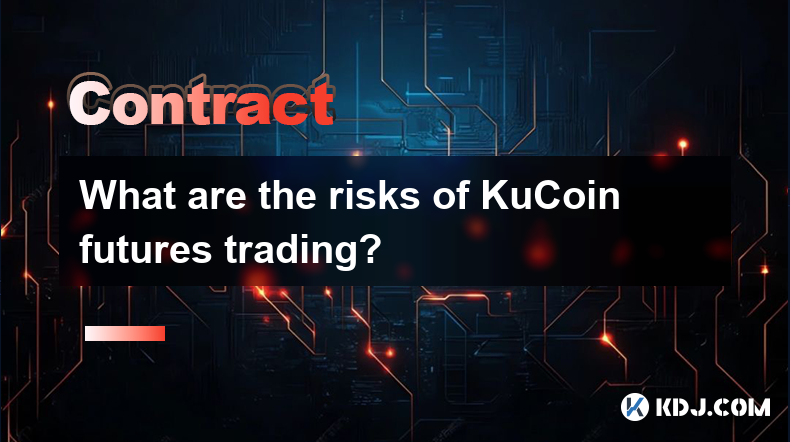
What are the risks of KuCoin futures trading?
Apr 03,2025 at 01:14am
KuCoin futures trading offers traders the opportunity to speculate on the future price of cryptocurrencies, but it comes with its own set of risks that traders need to be aware of. Understanding these risks is crucial for anyone looking to engage in futures trading on the KuCoin platform. This article will delve into the various risks associated with Ku...
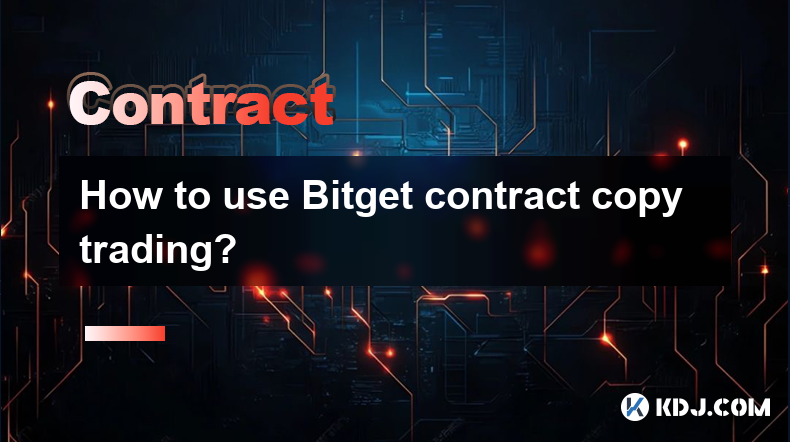
How to use Bitget contract copy trading?
Apr 03,2025 at 08:28am
Bitget's contract copy trading feature allows users to automatically replicate the trades of experienced traders, known as 'lead traders.' This can be a valuable tool for those looking to benefit from the expertise of others without having to spend time analyzing the market themselves. To start using this feature, you first need to understand how to sel...
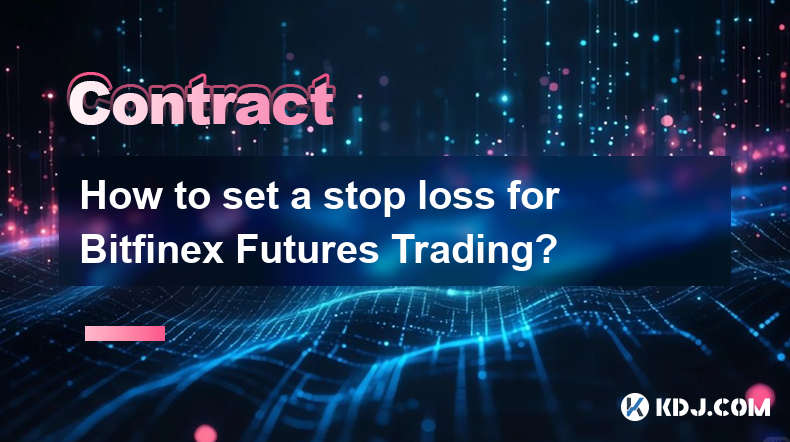
How to set a stop loss for Bitfinex Futures Trading?
Apr 03,2025 at 12:35pm
Setting a stop loss for Bitfinex Futures Trading is an essential risk management strategy that can help traders limit potential losses. A stop loss order is an instruction to sell a futures contract when it reaches a certain price, helping you to manage your exposure in volatile markets. To set a stop loss on Bitfinex, you need to navigate through the p...
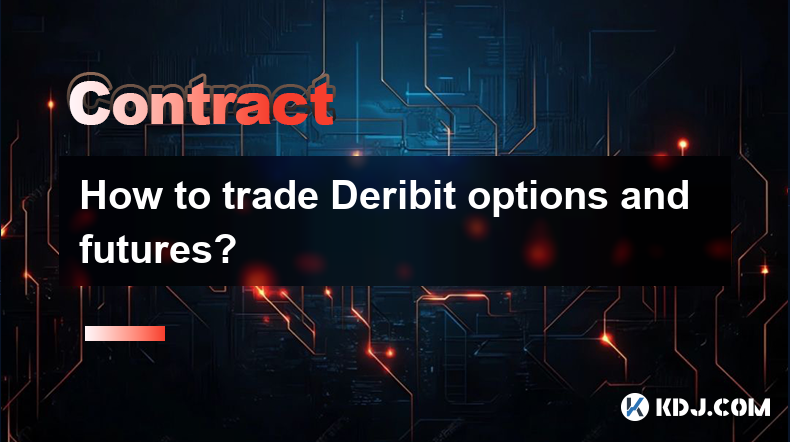
How to trade Deribit options and futures?
Apr 03,2025 at 02:00pm
Trading Deribit options and futures can be an exciting venture for those interested in the cryptocurrency market. Deribit, a leading platform for crypto derivatives, offers a variety of trading instruments including options and futures on Bitcoin and Ethereum. To successfully trade on Deribit, it's essential to understand the basics of these financial i...
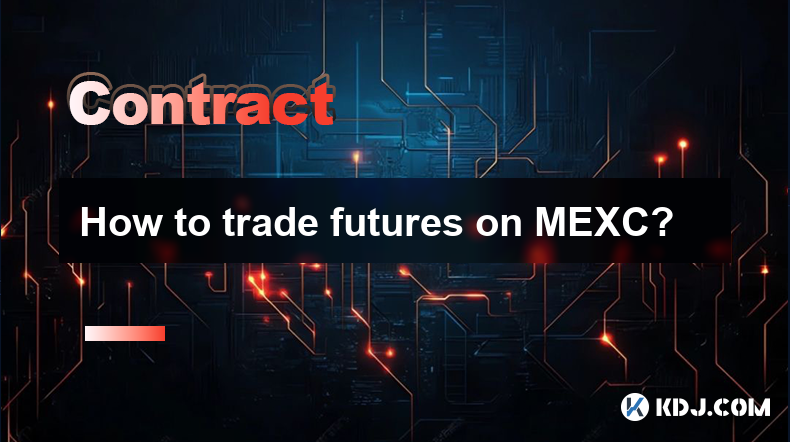
How to trade futures on MEXC?
Apr 03,2025 at 09:14pm
Trading futures on MEXC can be an exciting and potentially profitable venture for those interested in the cryptocurrency market. MEXC, a leading cryptocurrency exchange, offers a variety of futures contracts that allow traders to speculate on the future price movements of various cryptocurrencies. To successfully trade futures on MEXC, it's essential to...

How to trade CoinEx leveraged futures?
Apr 03,2025 at 03:56am
Trading leveraged futures on CoinEx can be an exciting way to potentially amplify your profits in the cryptocurrency market. Leveraged futures allow traders to borrow funds to increase their trading position, which can lead to higher returns, but also comes with increased risk. In this article, we will guide you through the process of trading CoinEx lev...

What are the risks of KuCoin futures trading?
Apr 03,2025 at 01:14am
KuCoin futures trading offers traders the opportunity to speculate on the future price of cryptocurrencies, but it comes with its own set of risks that traders need to be aware of. Understanding these risks is crucial for anyone looking to engage in futures trading on the KuCoin platform. This article will delve into the various risks associated with Ku...

How to use Bitget contract copy trading?
Apr 03,2025 at 08:28am
Bitget's contract copy trading feature allows users to automatically replicate the trades of experienced traders, known as 'lead traders.' This can be a valuable tool for those looking to benefit from the expertise of others without having to spend time analyzing the market themselves. To start using this feature, you first need to understand how to sel...

How to set a stop loss for Bitfinex Futures Trading?
Apr 03,2025 at 12:35pm
Setting a stop loss for Bitfinex Futures Trading is an essential risk management strategy that can help traders limit potential losses. A stop loss order is an instruction to sell a futures contract when it reaches a certain price, helping you to manage your exposure in volatile markets. To set a stop loss on Bitfinex, you need to navigate through the p...

How to trade Deribit options and futures?
Apr 03,2025 at 02:00pm
Trading Deribit options and futures can be an exciting venture for those interested in the cryptocurrency market. Deribit, a leading platform for crypto derivatives, offers a variety of trading instruments including options and futures on Bitcoin and Ethereum. To successfully trade on Deribit, it's essential to understand the basics of these financial i...

How to trade futures on MEXC?
Apr 03,2025 at 09:14pm
Trading futures on MEXC can be an exciting and potentially profitable venture for those interested in the cryptocurrency market. MEXC, a leading cryptocurrency exchange, offers a variety of futures contracts that allow traders to speculate on the future price movements of various cryptocurrencies. To successfully trade futures on MEXC, it's essential to...
See all articles






















































































